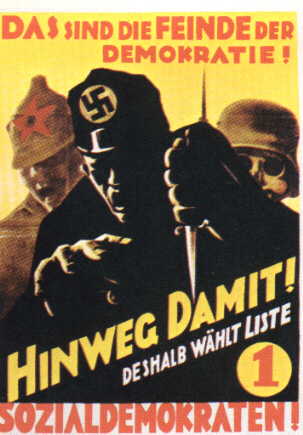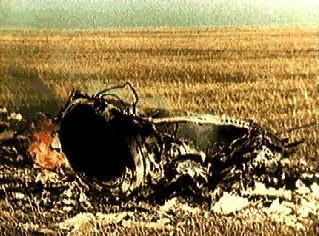
April 24

1547 Holy Roman Emperor Charles V defeats the Protestants at Muehlberg, near Leipzig, Germany.
1558 Mary Queen of Scots, at 16, weds the dauphin of France, the future Francois II.
1704 The Boston News Letter becomes the first American newspaper to be published on a regular basis.

1731 Death: Daniel Defoe, author; Robinson Crusoe, Moll Flanders.
1743 Birth: Edmund Cartwright, inventor of the power loom.
1792 The national anthem of France, La Marseillaise, is composed by Captain Claude Joseph Rouget de Lisle.
1800 President John Adams signs a law establishing the Library of Congress in Washington, DC. Initially designed as a library for congressional research, it has since amassed one of the largest collections of manuscripts and printed material in the world.
1833 Jacob Ebert of Cadiz, Ohio, along with George Dulty of Wheeling, West Virginia, patent the soda fountain.
1877 Federal troops are ordered out of New Orleans, ending the North's post-Civil War rule in the South.
1889 Death: Solomon Formstecher, Jewish idealist philosopher and rabbi at Offenbach from 1842. Die Religion des Geistes ("The Religion of the Spirit," 1841) is considered the most complete exposition of his philosophy and a thorough systematization of Judaism. He believed there were only two basic religions: the religion of nature (paganism) and the religion of spirit (Judaism). He thought the essence of Judaism was ethical. Its ethics, adulterated by myth and art, were also disseminated by Christianity and Islam but existed in purest form in Judaism. (Britannica)

1895 Joshua Slocum sets off from Boston, to sail single-handed around the world. The journey will take him just over three years.
1897 The first journalist to be named White House news reporter is William Price, who begins working the prestigious beat for the Washington Star.
1898 Spanish-American War: Spain declares war on the United States after rejecting America's ultimatum to withdraw from Cuba.

1904 Birth: Willem DeKooning, mediocre artist.
1905 Birth: Edward R. Murrow (Egbert Roscoe Murrow), in Pole Creek, North Carolina, news broadcaster, Emmy Award-winning radio and news broadcaster; will be remembered for his work as CBS's war correspondent and his attack on Senator Joseph McCarthy's investigation into American Communists, which will ultimately lead to the demise of the senator's career.

1915 Armenian Genocide: The Ottoman Turkish Empire begins the brutal mass deportation of Armenians.

1916 Some 1,600 Irish nationalists launch the Easter Rising by seizing several key sites in Dublin. See: April 29.
1921 Weimar: The Tyrol region of central Europe votes for union with Germany.
1926 Weimar: The Treaty of German-Soviet Friendship and Neutrality extends the Rapallo Treaty of 1922.

1931 Birth: Bridget Riley, British artist who will, with the aid a turntable (doesn't work with CD players), be the indirect cause of a moment of intense vertigo to a generation of LSD experimenters.

1932 Weimar: In German elections, the Nazis make gains in, Bavaria, Wurttemberg and Hamburg and increase their seats in the Prussian Diet from 6 to 162.
1933 Church and Reich: Baron von Ritter, the Bavarian ambassador at the Vatican reports to Berlin that Monsignor Kaas and the Papal Secretary of State are in constant touch with each other. "There can be no doubt that Cardinal Pacelli (the future Pope Pius XII) approves of a policy of sincere cooperation by the Catholics within the framework of the Christian Weltanschauung (world view) in order to benefit and lead the National Socialist Movement." (Lewy)
1935 The American Union for Social Justice, Father Couglin's organization, holds its first meeting in Detroit.
1935 Holocaust: A Nazi decree orders that publishers and newspaper editors must prove their "Aryan" descent to 1800, or lose their jobs.
1936 April 24-27 Anti-Jewish demonstrations break out in Czechoslovakia after screenings of the film Golem.

1938 Sudeten Crisis: A Sudeten German Congress at Karlsbad demands full autonomy for Sudeten Germans. "...There were many reasons why the Czech government did not agree with the stance of the Sudeten Germans - if the area was handed over to the Germans, would it lead to other nationalities in Czechoslovakia wanting independence? Also, the Sudetenland contained many valuable resources such as lignite, coal and the area was just about the country’s most vital defensive zone as the Sudetenland contained many border fortifications with Germany. The Sudeten Germans Peoples Party received both verbal and financial support from Hitler. Hitler had constantly talked about putting all Germans into one Reich and that no true German would have to live outside of Germany. In 1938, Hitler ordered his generals to start to make plans for the invasion of Czechoslovakia. He also ordered Henlein and his followers to start to create trouble in the Sudetenland, therefore proving to the outside world that the Czech government was incapable of maintaining order in its own state. Hitler planned to use this chaos to put his army into the Sudetenland to restore law and order. Hitler's plan was risky not least because the Czech army was strong and professional. The terrain from Germany to the Sudetenland was very steep and it was very likely that the Wehrmacht’s use of Blitzkrieg would have been of no value..."
1939 Holocaust: A new Slovakian decree dismisses Jews from the civil service and corporation staffs.

1942 Volkishness: Adolf Hitler, perhaps in a search of new territory to conquer, orders Dr. Heinz Fisher to conduct "Hollow Earth" experiments on the Baltic Island of Rugen.
1942 Holocaust: 650 Jews are deported from Nuremberg to Izbica and Belzec. (Atlas)
1942 Holocaust: German Jews are no longer allowed to use public transportation. (Persecution)
1945 WW2: Goering is officially removed from all his military and Party offices by Hitler. (Duffy)

1945 Holocaust: American forces liberate Dachau concentration camp.
1949 Sweets and chocolate come off ration in the UK.
1950 The state of Jordan is formed by the union of Jordanian-occupied Palestine and the Kingdom of Transjordan.
1955 The Bandung Conference, organized by five Asian states, condemns colonialism in both the West and the Soviet Union.
1961 President John F. Kennedy accepts 'sole responsibility' following the Bay of Pigs fiasco.
1962 President Kennedy, under pressure from the military, announces the resumption atmospheric atomic testing.
1965 The body of murdered Portuguese opposition leader Humberto Delgado is found in Spain.
1967 Daylight Savings Time is implemented nationwide in America for the first time.

1967 Soyuz 1: Vladimir Komarov, the first Russian to fly in the Soyuz craft, is killed when he crash-lands in Russia after his 17th orbit of Earth. Re-entry is successful and the drag chute deploys. However due to a failure of a pressure sensor, the main parachute does not deploy. Komarov releases the reserve chute, but it becomes tangled with the drag chute. The descent module crashes into a field near Orenburg at 03:24 GMT. See: April 23.
1970 Gambia is proclaimed a republic within the British Commonwealth.
1970 Grace Slick of the Jefferson Airplane is inadvertently invited to Tricia Nixon's White House party. Guards stop her and her escort, Chicago Seven defendant Abbie Hoffman, before they actually gain entry.
1970 The People's Republic of China launches its first satellite into orbit.
1975 Three people die when Baader-Meinhof terrorists attack the German embassy in Stockholm.
1980 A failed attempt to free the American hostages in Iran results in the deaths of eight US servicemen.
1985 There are a reported 832,602 millionaires in the United States, according to researchers. The average millionaire is 57 years old. A majority (85 percent) hold college degrees. 20 percent are retired and 70 percent are self-employed.
1990 East and West Germany agree on July 2 as the date for economic union, a prelude to full political unification.
1990 The road crew for Roger Waters discovers an unexploded WW2 bomb while constructing the set for The Wall concert in Potsdamer Platz, Germany.
1991 The first UN peacekeeping forces are deployed along the Kuwait-Iraq border.
1991 Greddie Stowers, a WW1 corporal, is posthumously awarded the Medal of Honor to become the first African-American to receive the highest medal for valor in combat.
1991 Kurdish rebel leaders reach an agreement in principle with Saddam Hussein on greater autonomy.
1992 Guerrilla leaders in Afghanistan agree on a 50-member council to take power in Kabul.
1995 A UN tribunal names Bosnian Serb leader Radovan Karadzic and two of his senior aides as war crimes suspects.
1995 A package bomb linked to the Unabomber explodes inside the Sacramento, California, offices of California Forestry Association, a lobbying group for the wood products industry, killing chief lobbyist Gilbert Murray.
1996 President Clinton signs into law a bill to fight terrorism.
1996 The Palestinian parliament-in-exile votes to amend clauses in the PLO charter which call for Israel's destruction.
1996 Russian President Boris Yeltsin meets Chinese President Jiang Zemin at the start of a visit to Beijing hailed by both sides as signaling a new relationship between them.
1997 Opening arguments begin in Denver in the federal court trial of suspected Oklahoma City bomber Timothy McVeigh.
1997 With ratification by the Senate, the United States becomes the 75th country to approve the Chemical Weapons Convention.
1998 After threats from President Yeltsin and two negative votes, the Russian parliament approves Yeltsin's nomination of Sergei Kiriyenko as the nation's premier.
1999 On the second day of a NATO summit, the alliance runs into objections from Russia and questions from its own members about enforcing an oil embargo against Yugoslavia.
2001

2002

2003

2004

2005

2005

Visit:




 Visit:
Visit:

Click Here to email the History: One Day At a Time webmaster.